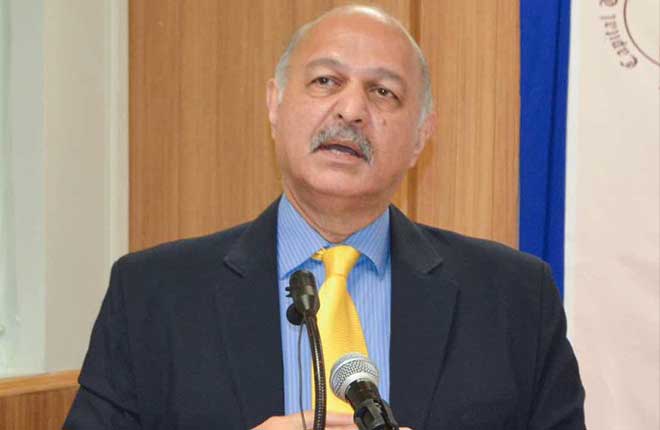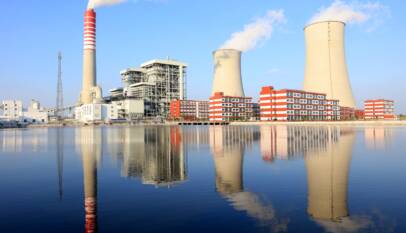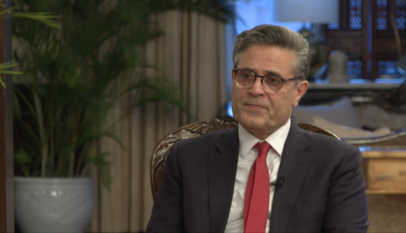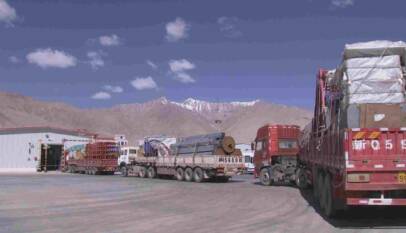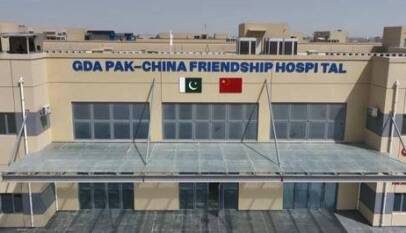Senator Mushahid Hussain Sayed praises Belt and Road Initiative’s decade of impact
In a speech at Nazarbayev University in Kazakhstan, President Xi Jinping marked the 10th anniversary of the Belt and Road Initiative (BRI), highlighting its significant impact on global development. Senator Mushahid Hussain Sayed, chairman of the Pakistan-China Institute, emphasized the success of the China-Pakistan Economic Corridor (CPEC) within the BRI, citing its contributions to infrastructure, energy, and education in Pakistan. With 152 countries and 32 international organizations signing agreements by June 2023, the BRI has invested $1 trillion in about 3,000 projects over the past decade, creating jobs and lifting millions out of poverty. Sayed criticized Western attempts to replicate the BRI, such as the BUILD Act and the “Build Back Better World” initiative, noting their lack of tangible outcomes. He argued that the BRI represents more than infrastructure, promoting a mindset that values equality, diversity, and inclusivity, while the West resorts to barriers, militarization, and confrontations in an unsuccessful attempt to contain China. Sayed concluded that the Global South, supporting the BRI, is on the right side of history, fostering a better future through people-centric development and “win-win cooperation.”
In a speech at the Nazarbayev University in Astana, Kazakhstan, President Xi Jinping launched what has become the 21st century’s most significant development initiative. By June 2023, China has signed agreements with 152 countries and 32 international organizations on Belt and Road cooperation. Comprising the Silk Road Economic Belt and the 21st Century Maritime Silk Road, the Belt and Road Initiative has helped improve infrastructure and connectivity between and within countries.
We in Pakistan, neighbor and strategic partner of China, are fortunate to have the China-Pakistan Economic Corridor as part of the Belt and Road Initiative. The CPEC has helped build an enabling economic environment in Pakistan with energy, education and the economy being among its key pillars. China has invested nearly $26 billion in direct projects in Pakistan, creating 236,000 jobs, generating 8,000 megawatts of electricity, and building 510 kilometers of highways and 886 km of the national electricity grid. Also, about 28,000 Pakistani students are studying in China and more than 20,000 Pakistanis are learning Chinese.
The CPEC is not just about bricks and mortar. It is also about people-to-people exchanges, which are at the core of the strategic bond between the two “iron brothers”, Pakistan and China. The CPEC was launched when Pakistan was facing immense challenge from terror groups. It was also facing instability and conflict due to the US’ “war on terror” in neighboring Afghanistan. By launching the CPEC, China gave a vote of confidence to Pakistan and its people, and raised Pakistani people’s hope for a better future.
The CPEC’s successful completion of “early harvest projects” on schedule, with no job cuts even during the COVID-19 pandemic, speaks volumes about the dedication and commitment of both sides to complete these projects.
The Belt and Road Initiative demonstrates resilience and continuity of a world that is facing turbulence and transformation. The past 10 years has seen the investment of $1 trillion in about 3,000 Belt and Road projects, which have created 420,000 jobs and helped lift 40 million people out of poverty.
As it celebrates its 10th anniversary, the Belt and Road Initiative faces a barrage of propaganda from its detractors in the West who largely view it through a geopolitical lens because they seek to contain China by igniting a new Cold War.
As an English saying goes, imitation is the highest form of flattery. To counter the Belt and Road Initiative, the West, especially the United States, has come up with similar development initiatives only to fail in delivering any of its promises. For example, in 2018, the US Congress passed the BUILD Act (Better Utilization of Investments Leading to Development Act), with an institutional back-up in the form of the International Development Finance Corporation, and having a financial outlay of $60 billion for infrastructure projects. But nothing materialized.
In 2021, at the G7 Summit in Cornwall, the United Kingdom, US President Joe Biden announced the “Build Back Better World” (B3W) initiative with much fanfare. A year later, after Biden failed to launch any project, the G7 rebranded B3W as the “Partnership for Growth in Infrastructure and Investment”. Concurrently, the European Union launched its copycat version, “Golden Gateway”, to “compete” with the Belt and Road Initiative. None has shown any concrete outcomes in terms of projects launched.
And at the G20 Summit in New Delhi in September, the US, together with the EU and some other countries, launched yet another “historic” initiative to “counter” the Belt and Road Initiative: the “India-Middle East-Europe Economic Corridor”.
What critics of the Belt and Road Initiative fail to realize is that the China-proposed initiative is not just about building projects; it is about a different mindset, a mindset that promotes values and delivers on promises at a time when the global center of gravity is shifting from the West to the East.
The Belt and Road Initiative, together with the Global Development Initiative, the Global Security Initiative and the Global Civilization Initiative, is helping establish a global order based on equality, diversity and inclusivity, build bridges (the China-brokered rapprochement between Saudi Arabia and Iran is a fine example), and promote modernization and connectivity. Conversely, born again Cold Warriors in the West are building barriers (sanctions, tariffs and protectionism), militarizing international relations (QUAD, AUKUS, eastern expansion of NATO) and sparking confrontations and conflicts in the Asia-Pacific region. This is their tried and tested but failed formula to contain China. For instance, the launch of Mate 60 Pro smartphones by Huawei is a slap on the face of the proponents of sanctions.
As for people in Pakistan and the majority of the Global South, they support the Belt and Road Initiative and participate in and benefit from it due to its people-centric development and “win-win cooperation” approach. The Global South, as the backbone of Belt and Road Initiative, is on the right side of history, working together to build a better tomorrow with no overlords and underdogs.
Experts say Pakistan needs stable policies to fully utilize China’s expertise in clean energy and industrial development
Pakistan’s energy sector investments are on a complex trajectory. Despite government effor…



